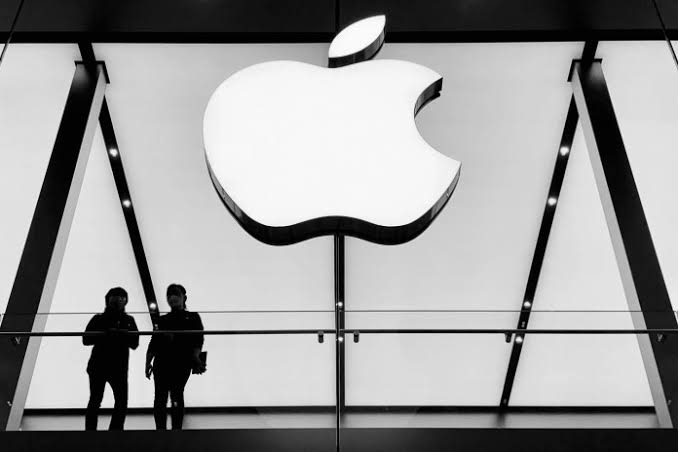Apple’s Senior Vice President of Machine Learning and AI, John Giannandrea, testified in the Google antitrust trial recently and disclosed a new feature in iOS 17 that allows users to choose different search engines for regular and private browsing on Safari.
According to Bloomberg, Giannandrea said that iOS 17 introduced a new option for users to select different search engines on their iPhones. This feature includes settings for standard browsing using Safari and for private browsing.
Google remains the default choice for both settings, but users now have the option to make a change if they wish. While Apple is not a defendant in this legal case, the focus has shifted to their significant financial arrangement with Google.
To modify your primary search engine away from Google, navigate to the Settings > Safari menu. Within the Search section, you’ll encounter choices for both Search Engine and Private Search Engine.
Phone Arena reported that tapping on Search Engine allows you to select from: (1) Google, (2) Yahoo, (3) Bing, (4) DuckDuckGo, and (5) Ecosia.
Similarly, by tapping on Private Search Engine, you can opt for any of the above search engines from the same list.
Prior to the introduction of iOS 17, users were restricted to a single search engine choice for both regular and private browsing. However, iOS 17 introduces the ability for users to designate a secondary search engine.
Moreover, this procedure simplifies the task of transitioning to alternative search engines, effectively allowing users to substitute Google with ease on their iPhones.
However, during Thursday’s proceedings, Gabriel Weinberg, the CEO of DuckDuckGo, provided testimony asserting that Google’s default search engine position on numerous mobile browsers acts as a deterrent, hindering users from making the switch.
According to Weinberg, the process typically involves “too many steps.” However, it’s important to note that this does not appear to be the case with iPhones.
Read also: Understand iOS 17 pros and cons before upgrade
Google Trial
Google pays Apple a substantial annual sum to maintain its position as the default search engine on the iPhone, with the Department of Justice estimating this payment to be in the range of $4 billion to $7 billion per year.
Apple Insider reported that the legal proceedings are anticipated to extend over a ten-week period, during which various Apple executives are scheduled to testify. Among those expected to take the stand is Eddy Cue, a prominent figure within the company.
The accusations against Google encompass a range of issues, including financial arrangements involving payments from Google to Apple, ensuring Google’s continued status as the default search engine on the iPhone.
With the introduction of iOS 17, Phone Arena reported that Google maintains its default position for regular browsing searches, while the Private Browsing mode initially follows the user’s selected default search engine.
What are the other allegations against Google?
Some of the other allegations against Google in the antitrust trial are:
Google manipulated its advertising auctions to meet its revenue goals, according to Jerry Dischler, the head of Google’s ads business. Google used its dominant position in search to favor its own products and services, such as Google Maps, Google Shopping, and YouTube, over those of its competitors.
Google restricted the ability of third-party developers and websites to access and use its search data and APIs, limiting innovation and competition in the online search market.
What is the status of the antitrust trial?
The antitrust trial against Google is still ongoing, and it is expected to last for about 10 weeks. The trial began on September 12, 2023, and it is being held in a federal court in Washington, DC. The trial is about whether Google has unlawfully monopolized the online search and search advertising markets and whether it has harmed consumers, competitors, and innovation.
According to the news reports, some of the main developments in the trial so far are:
The Justice Department opened the trial with sweeping accusations that Google has used exclusive contracts with phone makers and wireless carriers to ensure that Google is the default or only search engine available on millions of devices.
Google defended its practices by arguing that its search engine is the best product for consumers and that it faces competition from other sources of information, such as social media, e-commerce, and voice assistants.
The judge dismissed some of the claims brought by the Justice Department and a coalition of states, including allegations that Google Search harms competing services, such as Yelp and TripAdvisor.
Several witnesses have testified in the trial, including Google’s CEO Sundar Pichai, Apple’s Senior Vice President of Machine Learning and AI John Giannandrea, DuckDuckGo’s CEO Gabriel Weinberg, and Google’s former head of advertising Susan Wojcicki.
The trial has been criticized for being secretive and inaccessible to the public, as there is no audio or video streaming available, and only a limited number of reporters and observers can attend in person. Some activists have tried to document the trial through social media and newsletters.
















